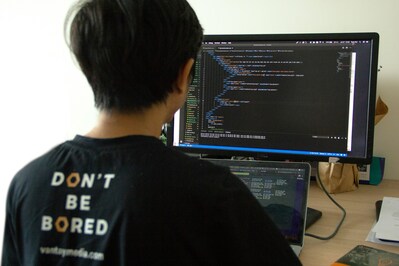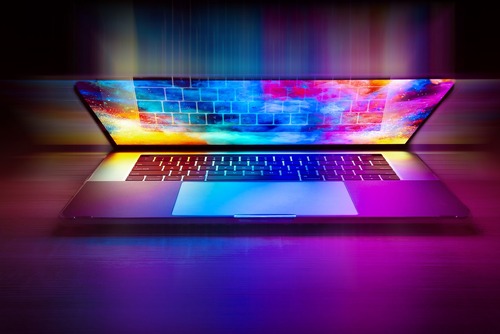Imagine sitting in your living room with a steaming cup of coffee. You’ve got a melody in your head—a little jazzy, a little moody—but you don’t play any instruments, and you definitely don’t read sheet music. A few years ago, that would’ve been the end of your musical ambition. But today? You can hum that tune into your phone, tweak the style with a few clicks, and voila—an AI has transformed your spark of inspiration into a full-blown track.
Welcome to the future of music creation.
From classical symphonies to trap beats, artificial intelligence is learning every musical genre with shocking precision—and in some cases, jaw-dropping creativity. But how exactly is AI pulling this off? And more importantly, what does it mean for musicians, music lovers, and curious creators like you?
Let’s take a journey through the soundscapes of Bach to bass drops and explore how AI is transforming the way we understand and make music.
Music: A Language AI Is Learning to Speak
At its core, music is structured emotion. It has patterns, rules, rhythms, and dynamics. That makes it perfect for AI, which thrives on data, repetition, and logic.
Early music AIs began with classical compositions because, frankly, they’re beautifully mathematical. Take Bach, for instance. His compositions follow strict patterns and counterpoints, which made them excellent training data for machine learning models. Feed a neural network enough of his music, and it begins to learn how notes relate, how motifs evolve, and how harmony is structured.
But AI didn’t stop at Bach. It moved to jazz, learning improvisation patterns. It studied pop, understanding verse-chorus structures. It broke down hip-hop and EDM, learning how to build tension and drop a beat.
Today’s most advanced systems can analyze everything from Raga to Reggaeton. And they’re doing more than just copying—they’re creating.
Real-World Examples: Where AI Music Is Already Happening
This isn’t science fiction. AI-generated music is already out in the world, playing in commercials, streaming platforms, and even live concerts.
Take Aiva, one of the earliest AI music composers, which was trained on classical music and now composes soundtracks for films and games. Or consider the AI that helped David Bowie’s producer finish a track using Bowie’s past vocal styles and writing patterns.
Even pop stars are getting involved. Taryn Southern famously released an entire album where every instrumental was created by an AI. No band. No studio musicians. Just human-AI collaboration.
And for everyday creators, tools like AI music maker allow anyone—regardless of musical training—to explore and compose in any genre, from lo-fi chillhop to orchestral drama.
This accessibility is a game changer. It’s one thing for a record label to play with AI. It’s another for a high school student, a small business owner, or a podcaster to be able to generate original music in minutes.
Can AI Really Understand Music?
This is where things get both philosophical and practical.
On the one hand, AI doesn’t feel joy when it hears a cello solo. It doesn’t cry when it hears Adele. It processes data—millions of hours of audio, metadata, and listener feedback—to predict what sounds good, what fits together, and what people want to hear.
But that doesn’t mean it’s shallow. In fact, AI is often able to spot subtle musical patterns that human composers might overlook. It can blend styles in strange and beautiful ways—think Chopin meets trap—or suggest chord progressions that surprise even seasoned musicians.
A jazz guitarist I spoke with recently told me he used AI to experiment with scales he’d never considered. “It’s like collaborating with someone who’s heard every song ever made,” he said.
So while AI doesn’t feel music, it certainly seems to know it—and it’s getting better every day.
What This Means for Musicians
Let’s address the elephant in the room: is AI going to replace musicians?
Short answer? No. Longer answer? It’s going to change what it means to be a musician.
Think of AI not as a replacement, but as a tool—like a synthesizer or a DAW (digital audio workstation). It can speed up workflows, offer creative suggestions, and handle repetitive tasks like looping or arranging.
For solo artists and indie producers, AI can act as a collaborator. For teachers, it can help students understand harmony and rhythm through real-time feedback. For content creators, it removes the barrier of needing a composer for every project.
It’s also worth mentioning that AI can democratize music creation. Not everyone has access to instruments, formal training, or expensive software. But almost everyone has a phone. AI is opening doors for new voices and fresh sounds that might’ve never made it through the traditional music pipeline.
The Human Touch: Still Irreplaceable
Despite AI’s incredible progress, there’s one thing it still can’t replicate: lived experience. Human music is messy, emotional, unpredictable. It draws from heartbreak, joy, politics, family traditions. An AI can generate a love song—but it doesn’t know what it’s like to fall in love.
That’s why the best AI-generated music often comes from collaboration. A human sets the tone, brings the emotion, guides the story. AI fills in the gaps, offers suggestions, and helps refine the vision.
It’s a partnership—one that’s still in its early stages, but already proving powerful.
Tips for Exploring AI-Generated Music
Curious about jumping in? Here are a few tips to help you get started with AI music tools:
- Start Simple: Choose a tool that lets you pick a mood or genre and generates a basic track. Play with it. Don’t overthink.
- Bring Your Personality: Use your own vocals, lyrics, or melodies to make the track your own.
- Experiment with Styles: Try blending unexpected genres—like folk and dubstep—to discover unique sonic landscapes.
- Use It as a Sketchpad: Even if you’re a trained musician, AI can help you brainstorm and break creative ruts.
- Have Fun With It: Don’t treat it as a competition with “real music.” Think of it as a sandbox for your ideas.
Final Thoughts: Music, Reimagined
From Bach’s meticulous fugues to today’s algorithmically generated beats, music has always evolved alongside technology. The printing press made sheet music accessible. The phonograph changed how we listened. Synthesizers revolutionized pop. And now, AI is reshaping how we create.
The best part? You don’t need a Grammy or a conservatory degree to join in. Whether you’re a seasoned producer or someone who’s never played a note, AI is handing you the keys to a new musical world.
So go ahead—compose that soundtrack, remix that genre, hum that tune. With a little help from AI, your musical ideas have never had more potential to come to life.



